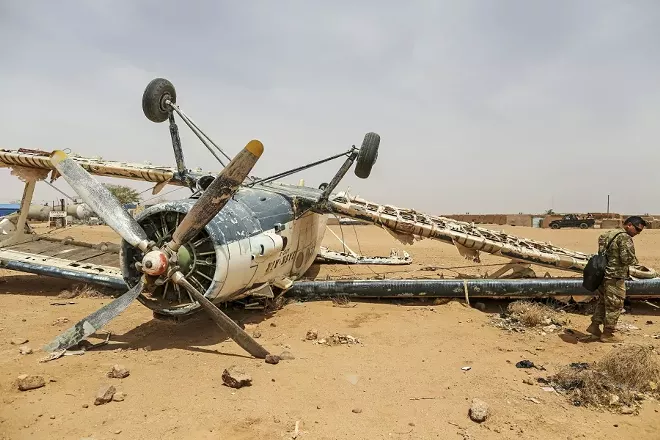
By ERIC SCHMITT
© 2018 New York Times News Service
AIR BASE 201, Niger — Rising from a barren stretch of African scrubland, a half-finished drone base represents the newest front line in the United States’ global shadow war.
Near the runway, Army Green Berets are training Nigerien forces to carry out counterterrorism raids or fend off an enemy ambush — like the one that killed four U.S. soldiers near the Mali border last fall.
Taken together, these parallel missions reflect a largely undeclared U.S. military buildup outside the battlefields of Iraq and Afghanistan, unfolding in remote places like Yemen, Somalia and, increasingly, West Africa.
In Niger alone, the Pentagon in the past few years has doubled the number of U.S. troops, to about 800 — not to conduct unilateral combat missions, but to battle an increasingly dangerous al-Qaida, the Islamic State and even loosely associated extremist groups with proxy forces and drone strikes. The military’s missions in Niger are expected to come under scrutiny in a Defense Department investigation into the Oct. 4 ambush that is nearing release.
“The base, and the more frequent flights that its opening will allow, will give us far more situational awareness and intelligence on a region that has been a hub of illicit and extremist activity,” said P.W. Singer, a strategist at New America in Washington who has written extensively about drones. “But it will also further involve us in yet more operations and fights that few Americans are even aware our military is in.”
Where American and Nigerien officials see enhanced security in drone operations — for surveillance, strikes or protecting Special Forces patrols — others fear a potentially destabilizing impact that could hand valuable recruiting propaganda to an array of groups aligned with al-Qaida and the Islamic State.
“Eliminating jihadi military leaders through drone operations could temporarily disorganize insurgent groups,” said Jean-Hervé Jezequel, deputy director of the International Crisis Group’s West Africa project in Dakar, Senegal. “But eventually the void could also lead to the rise of new and younger leaders who are likely to engage into more violent and spectacular operations to assert their leadership.”














